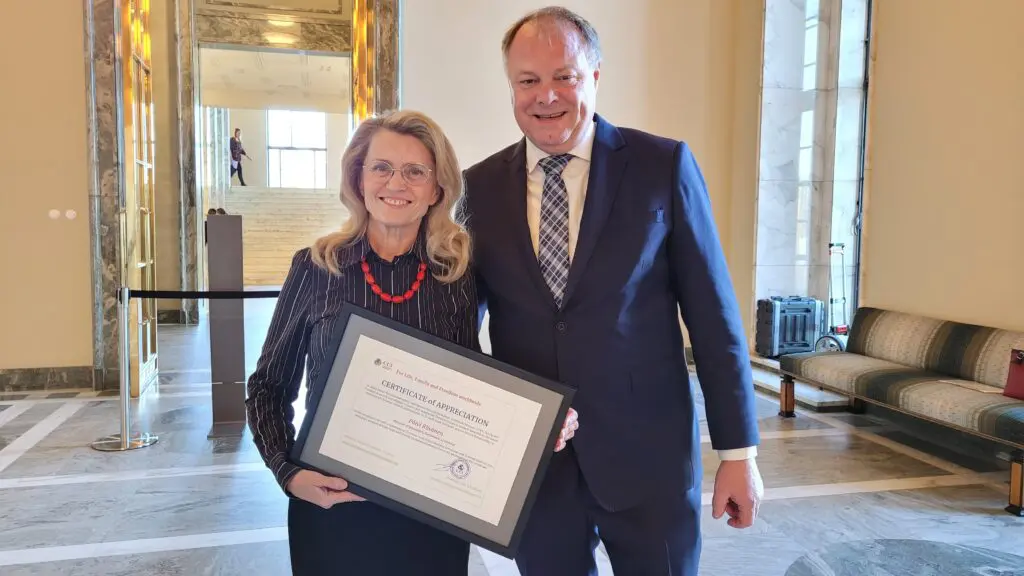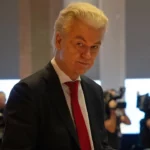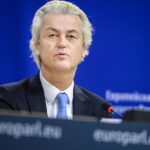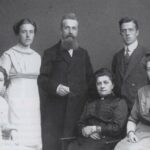International Politics, The Sexual Revolution
The Dutch Christian Confronting the International Left
After a half-hour audience with Henk Jan van Schothorst, President Chan Santokhi of Surinam was vexed. Abortion is illegal and opposition to the LGBT movement is strong in the small South American country. But the Surinamese ambassador to Brussels had recently signed a binding trade agreement with the European Union that included mandatory provisions on sexuality and “reproductive rights.”—without any public debate. Quietly inserting a radical social agenda into ostensibly economic negotiations is a key neo-colonial strategy of Western powers, and it is very effective.
Van Schothorst advised the president to withdraw the signature and send the treaty text to the Surinam parliamentary assembly, giving them six months to compare it with the country’s laws, and return the Surinam position to the EU. If the EU rejected it, Surinam could simply find other trade partners. “I thanked the president for his time and his attention,” he recounted. “‘No,’ he and his spiritual advisor said, ‘We must thank you. God has sent you. Would you please pray for us?’” The Dutch activist and the South American president bowed their heads together in prayer.
Surinam was the last stop on Van Schothorst’s whirlwind December tour of four South Caribbean countries. Henk Jan van Schothorst is the founder and executive director of Christian Council International (CCI), and his mission is to create “a transatlantic and international network of Christians and conservatives involved in public policy and influence policy from a Christian perspective,” working at the UN, EU, AU, and OSCE (Organization for Security and Co-operation in Europe) “to stand up for a Christian voice worldwide with a focus on life, family, and freedom of religion and education.”
On this trip, Van Schothorst briefed Christian parliamentarians, pastors, professionals, and high-ranking politicians on the details of the 20-year ACP (African, Caribbean, and Pacific)-European Union Partnership Agreement. “It intrudes into almost every area of the public and private life in signatory countries,” Van Schothorst noted. “From dictating abortion, to comprehensive sexuality education (CSE), to parental discipline, and social, sexual, gender, and cultural norms and more, the treaty goes far beyond the 2000 Cotonou Agreement it is intended to replace, violating national sovereignty in many ways.” That, of course, is deliberate.
Earlier in 2023, Van Schothorst had been invited to the Caribbean after a series of meetings at the semi-annual EU-ACP Joint Parliamentary Assemblies, where he and his CCI colleagues met and spoke with parliamentarians from Caribbean and Pacific countries; out of 16 Carib countries, 10 had not yet signed the treaty. Van Schothorst detailed the ways that the treaty obligations conflicted with the conservative laws of these countries—and how the inclusion of these provisions was intended to change laws on the issues of abortion and sexuality. In Surinam, after “appearances on radio, TV, and meetings with Christian professionals, spiritual leaders, parliamentarians, and the president, the Surinamese people became aware of the EU’s ideological power grab and a lively public debate erupted.”
In Grenada—where 96.6% of the population identifies as Christian—he met parliamentarians and pastors; the country later signed the treaty “at the insistence of the EU and with the promise that nothing substantive would change compared to the previous treaty (although that commitment was not included in writing).” MPs and ministers made time to meet in Trinidad (63% Christian) and Tobago (90% Christian); and the government there declined to sign. “On my transit to touristic Barbados, a liberal influx greeted me at the airport,” Van Schothorst told me. “The number of Christians has fallen to just under half of the population. I was not surprised that this country signed on.”
At the signing ceremony in Samoa on 15 November 2023, it turned out that 35 of the 79 countries had not yet signed the treaty. Why? Van Schothorst believes that CCI had something to do with it. “That was partially a result of our raising awareness,” he told me. “Dozens of times over the past three years, in Africa but also in Europe, we have gone to countries to point out the dangers in the treaty.” His Caribbean tour is one example of CCI’s work and real-world impact.
Henk Jan is the third of ten children from a conservative Christian family in the Netherlands, and his interest in politics was first piqued when he heard his father’s denunciations of socialist prime minister Joop Den Uyl. After military service and a six-month mission in Guinea, West Africa, he became a teacher, studying history in the evenings. At Leiden University, he specialized in European Union studies and did an internship with a newly elected Christian Member of European Parliament. After a week and a half, Van Schothorst recalled, the MEP asked him to stay on.
READ THE REST OF THIS COLUMN HERE








